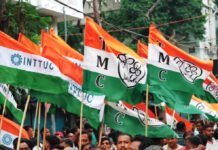The Supreme Court of India is set to begin hearing today on petitions challenging the Election Commission of India’s (ECI) handling of the Special Intensive Revision (SIR) of voter lists in Bihar. The hearings, scheduled for August 12 and 13, will address allegations and counterclaims surrounding the transparency, legality, and completeness of the revised electoral rolls in the state.
Background of the Dispute
The controversy stems from the ECI’s position that, under the Representation of the People Act, 1950 and the relevant electoral rules, there is no legal requirement to prepare or publish a separate list of voters whose names are missing from the draft electoral roll. Furthermore, the Commission maintains it is not obligated to share the reasons for exclusion in individual cases.
These assertions have been contested by opposition parties, which accuse the ECI of withholding critical information and failing to ensure transparency in the voter roll revision process. The petitions before the apex court seek clarity on whether such actions are consistent with constitutional principles and the statutory framework governing elections.
ECI’s Stand: Opposition Protests Lack Formal Objections
In a pointed statement on Monday, the Election Commission remarked that the opposition is “only protesting in Parliament and on the streets” rather than using the established legal and procedural channels to address grievances. According to the Commission, no formal objections have been lodged within the prescribed period regarding the draft voter list released after the SIR in Bihar.
Even after 11 days of the draft publication, the ECI reported that no political party had submitted applications to add or remove names from the list. The Commission stressed that electoral procedures are governed by clear timelines, and any objections must be filed during the statutory window provided.
Findings of the SIR Process in Bihar
The Special Intensive Revision in Bihar was conducted between June 24 and July 25, 2025, covering a massive electorate base. According to the Commission’s data:
Total voters as of June 24, 2025: 7.89 crore
Voters who submitted counting forms: Over 7.24 crore (91.69% of total voters)
Deceased voters identified: 22 lakh
Voters permanently moved or not found: 36 lakh
Voters registered at multiple places: 7 lakh (0.89%)
In addition, the Commission confirmed receiving 10,570 forms from individual voters requesting inclusion in the electoral roll during the revision process.
Congress’s Allegations and ECI’s Response
The political storm intensified when the Congress Party and its senior leader Rahul Gandhi alleged that large-scale “vote theft” had occurred during the revision, disenfranchising legitimate voters. These allegations were made prominently during protest marches and public addresses.
In a detailed rebuttal, the ECI issued a fact check labeling the Congress claims as “factually incorrect.” The Commission backed its stance with documented evidence, including:
Video recordings of party representatives from the RJD, Congress, and CPI observing the SIR process.
Meeting records showing consultations with political party representatives before, during, and after the publication of the draft electoral roll.
Written communications outlining the procedure and timelines for objections.
According to the Commission, these steps demonstrate that due process and transparency were maintained throughout the voter list revision.
Legal Questions Before the Supreme Court
The case before the Supreme Court raises several key legal and constitutional questions:
Scope of ECI’s obligations under electoral law – Does the Commission have to prepare and share a separate list of missing names?
Transparency requirements – Must the ECI publicly disclose the reasons for each name’s exclusion?
Right to information for political parties – Do opposition parties have a legal right to access detailed exclusion data beyond the draft roll?
Remedies for affected voters – What mechanisms should be in place to ensure disenfranchised voters can seek redress promptly?
Legal experts note that the court’s ruling could set important precedents affecting future voter roll revisions across India.
Political Context: Street Protests vs. Legal Action
While the legal battle unfolds in the Supreme Court, the political narrative is equally significant. Opposition parties, particularly the Congress and its allies, have mobilized street protests and staged walkouts in Parliament to highlight their grievances.
However, the Election Commission’s data suggests that procedural avenues for filing objections were underutilized. This raises questions about whether the protests are primarily political theater or whether there are deeper procedural barriers discouraging formal complaints.
Electoral Integrity and Public Trust
The accuracy of electoral rolls is the cornerstone of democratic elections. Missing names, duplicate entries, and outdated voter information can undermine public trust and raise concerns about electoral integrity.
In Bihar’s case, the removal of 58 lakh voters (dead, relocated, or duplicates) during the SIR indicates a significant effort to clean up the rolls. However, the lack of a public list of missing names has fueled suspicions, even if legally permissible under current rules.
Potential Impact of the Supreme Court Verdict
The Supreme Court’s decision could have far-reaching consequences:
If the court sides with the ECI, it may reaffirm the Commission’s discretion in conducting voter list revisions without additional disclosure obligations.
If the court rules in favor of petitioners, the ECI could be mandated to adopt greater transparency measures, including publishing detailed exclusion lists and reasons for removals.
Political ramifications are inevitable, as either outcome will be framed as a victory or setback for different sides ahead of future elections.
The Road Ahead for Bihar’s Voter List
Regardless of the verdict, the process of updating and correcting electoral rolls will continue in Bihar, as mandated by law. Eligible voters still have the opportunity to apply for inclusion or correction in the rolls through the standard application process, such as Form 6 for inclusion and Form 8 for corrections.
The ECI has reiterated its commitment to free, fair, and inclusive elections, stating that every eligible citizen will have the chance to be enrolled before the final electoral roll is published.
Key Takeaways
The Supreme Court is hearing petitions on the ECI’s handling of the SIR in Bihar on August 12 and 13.
The ECI claims it has no legal duty to prepare or share separate lists of missing voters.
Opposition parties have protested in Parliament and on the streets but have filed no formal objections within the legal window.
The SIR identified 58 lakh ineligible voters (dead, relocated, or duplicates) and received 10,570 new inclusion requests.
The outcome of the case could reshape voter list transparency norms nationwide.
As the hearings progress, all eyes will be on the Supreme Court’s interpretation of electoral law and its balance between administrative discretion and the right to information. The verdict will not only decide the fate of the petitions but could also redefine the standards of transparency in India’s electoral process.














